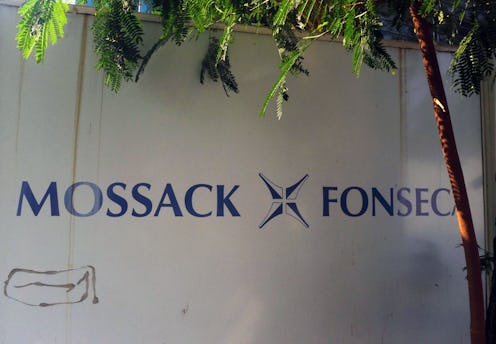News
There's An Interactive Map Of The Panama Papers
A huge trove of documents leaked to a German newspaper connects the world's rich and powerful to offshore bank accounts set up by a Panamanian law firm to launder money, evade sanctions, and underpay taxes. The Panama Papers, as they have been called, are the biggest leak of documents ever. Wikileaks pales in comparison, at least in sheer size. Most of the shell companies set up are in low-tax jurisdictions, but where are these Panama Papers companies and clients from?
An online map created from the database of clients and companies mentioned in the leaked documents shows where they are based. While the offshore accounts are not illegal in and of themselves, they can be used for illegal dealings. Already, politicians have been implicated. Twelve world leaders have been directly named, while other connections reach friends and associates of Russian President Vladimir Putin and Pakistani President Nawaz Sharif's children.
However, countries like Russia or Pakistan are not where most of the companies and clients involved in these offshore accounts are based. At least, not if you go by the map created by Brian Kilmartin, the digital production editor at The Irish Times. Many European countries, like the United Kingdom, Luxembourg, and Monaco have as many or more companies and clients implicated. The United States also has its fair share. More than 3,000 U.S. companies are connected, with a total of 441 clients.
This could also be a preview of which countries will have the most money to potentially recoup from unpaid taxes. Australia and New Zealand began probing local clients of Mossack Fonseca. In Australia, the tax office said that it had 800 wealthy clients in its sights. "We have now linked over 120 of them to an associate offshore service provider located in Hong Kong," it said in a statement. The targets are a mix of people who have previously been investigated and new accounts that the government wasn't previously aware of.
The United Kingdom is also seeking information to begin an investigation. The country's tax authorities have written to The Guardian and other media groups that have access to the documents to request a copy. As more tax investigators get their hands on the data, there's no doubt that some of the owners of these offshore accounts could get a hefty bill.
